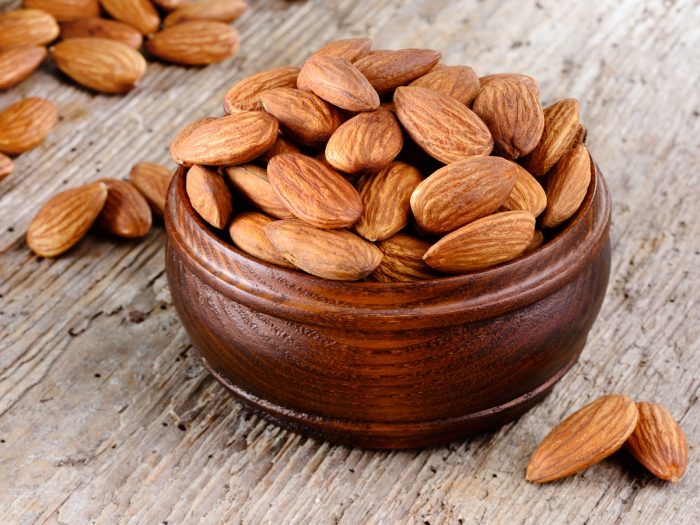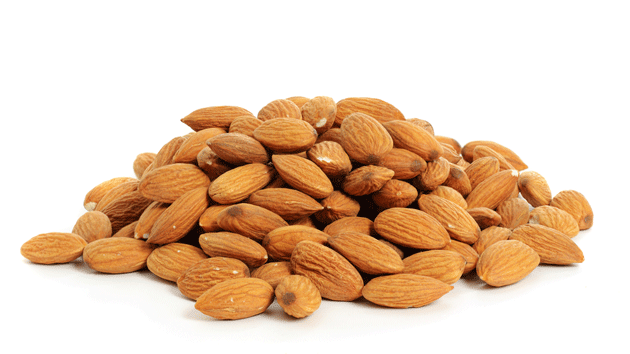What Are the Benefits of Eating Almonds Daily?
What are almonds?
Almonds are the seeds of fruit grown from almond trees. The scientific name of these dried fruits is Parus Dulcis and they are native to the Middle East, India, and North Africa. They are now also found in places like Iran, Saudi Arabia, Lebanon, Turkey, Syria, Jordan, and Israel. The sweet taste of bitter almonds is easily available in both markets.
Sweet almonds are edible, whereas bitter people are used to
making oil, a common oil used to add flavor to food is usually raw, but many people like salads, casseroles, and others Contain recipes. Almond milk is also a delicious drink and is a substitute for less nutritious cow's milk. You can eat directly almond directly to increase the absorption of your
nutrients and increase speed. You can soak them in water throughout the night so that you can eat them the next morning. Crushed almonds are also a wonderful garnish for many dishes.
Almond provides about ¼ cup of nutrition:
• 207 calories
• 5 grams of protein
• 5 g fiber
• 7 grams of carbohydrate
• 5 grams of sugar
• 16 mg vitamin E (61 percent DV)
• 0.4 mg Riboflavin (44 percent DV)
• 0.8 mg manganese (44 percent DV)
• 97 mg magnesium (36 percent DV)
• 172 mg phosphorus (29 percent DV)
• 96 mg calcium (9.5 percent DV)
• 33 milligrams of iron (4 percent DV)
Remedy for anemia
The cause of
anemia is when red blood cells take low amounts of oxygen. Almonds contain copper, iron, and vitamins, which act as catalysts in the synthesis of hemoglobin. Therefore, almonds can be used as a preventive remedy for anemia.
Increase digestion and metabolism
Almond
milk has a secret mark of fiber; fiber is known to increase its
digestion. In this way, almond milk makes the problem of inevitable easy
to a large extent. Increased
digestion leads to unwanted and unhealthy
toxins outside the human body system. It flows. This increases the human
body's metabolic rate.
They protect the walls of the artery from damage
It was found that flavonoids work in harmony with almonds, thus reducing the risk of heart disease (research at the University of Rufus).
Heart-healthy protein
People who put muscles can choose almond butter because it is a healthy source of protein. Unsaturated fat in almond butter reduces cholesterol and helps in keeping the cardiovascular disease in the bay. A healthy adult should consume at least 25% of your daily calorie intake of fat and is the best way to get heart-healthy fat with protein.
Antioxidant
Another advantage is that almond butter is on peanut butter. Almond butter, with its vitamin E, has important antioxidant properties which protect the tissues from oxidative damage. Vitamin E is an antioxidant that can neutralize free radicals. A spoon of almond butter will take care of approximately 30% of your daily vitamin E requirement.
Nerves and muscles
Magnesium
present in almond butter provides many benefits for the nervous system
and contraction of the muscles because the mineral plays a role in both
functions. It also contributes to healthy metabolism and bone tissues.
This is something that peanut butter can not offer.
Weight Maintenance
Almond butter
full of calories does not contribute to weight. On the contrary, healthy
fibers and high proteins have helped to complete the stomach to
contribute to weight loss. There is even a suggestion that these
calories cannot be absorbed and can not be converted to extra pounds.
However, after the completion of eating almond butter in combination
with its nutritional profile, people were found to consume less
unhealthy food later in the day.



No comments